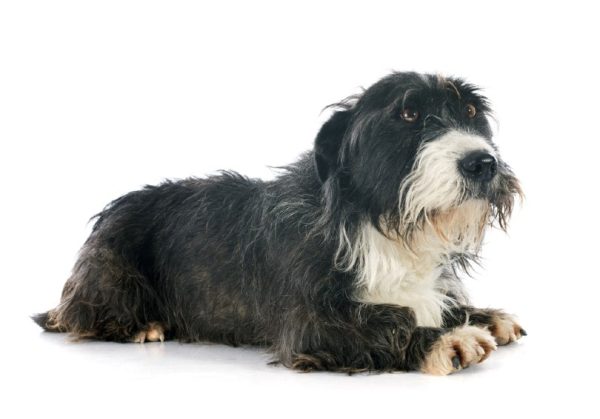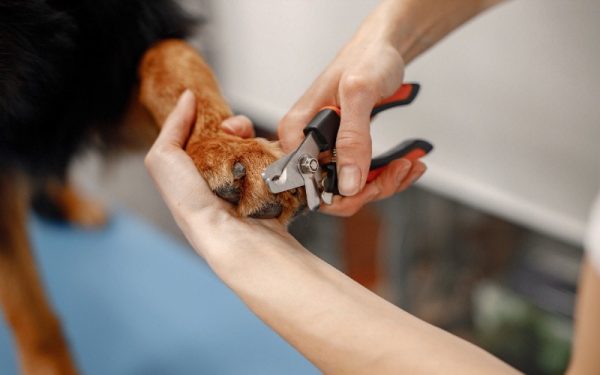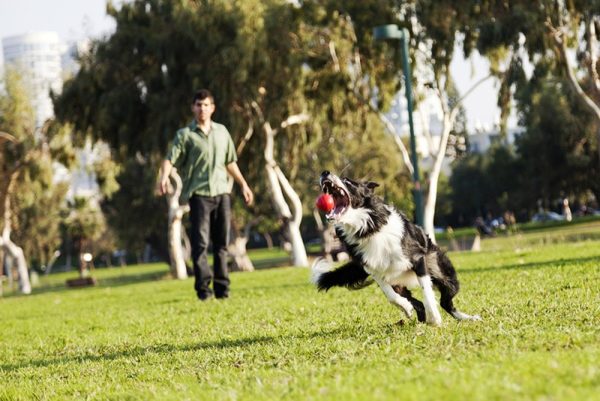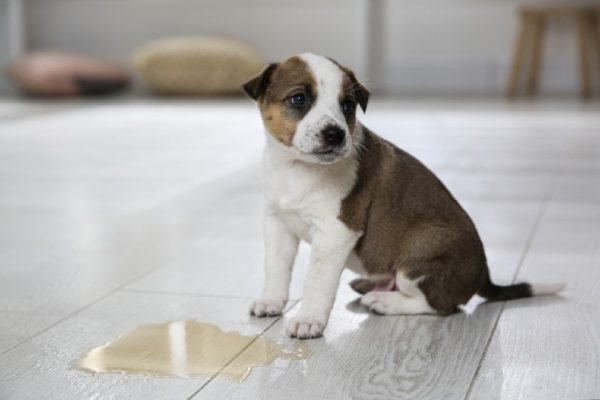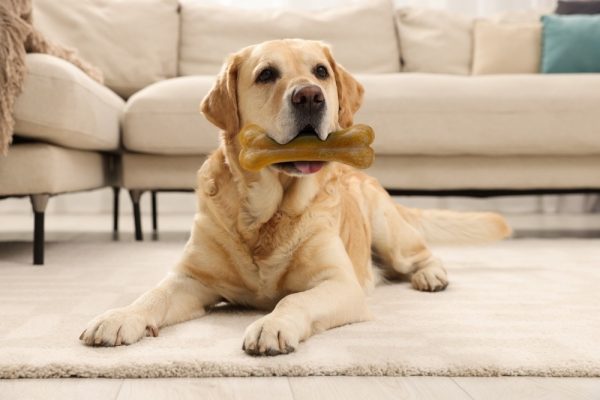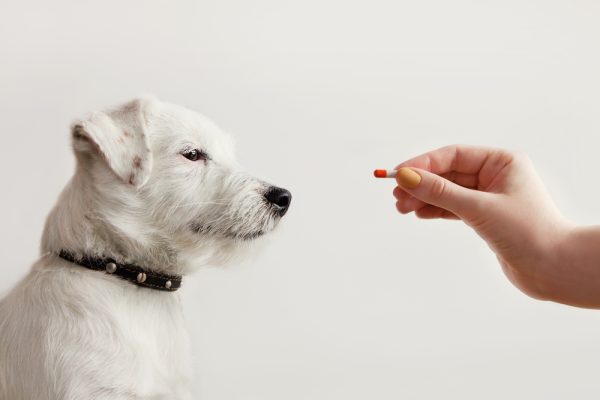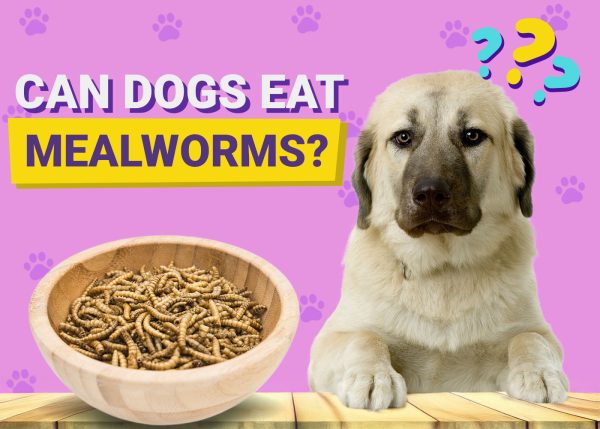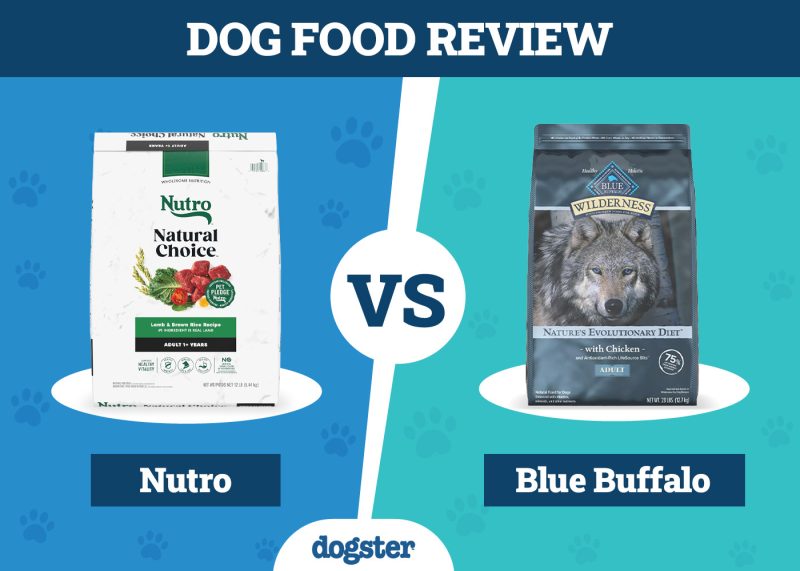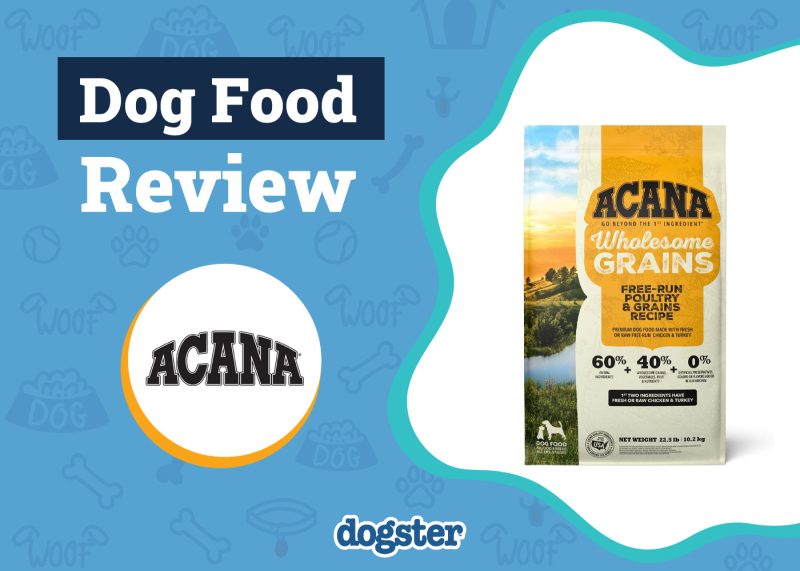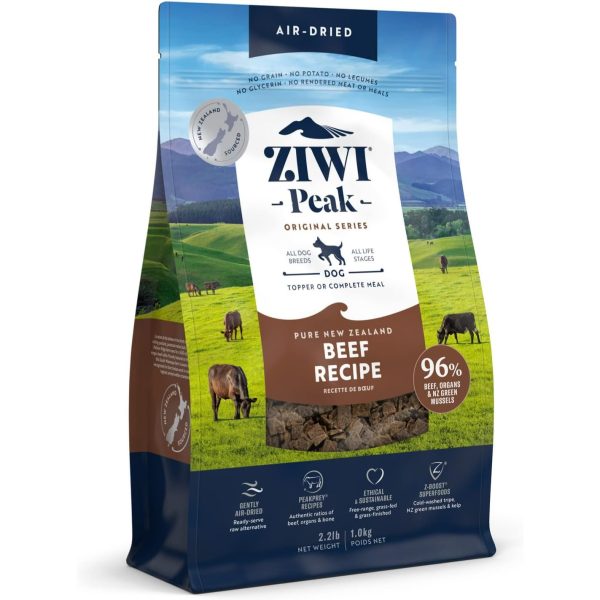In this article
Whether you call it gas, passing wind, or farting, the release of intestinal gas through the rectum is normal for dogs. While the occasional fart is nothing to worry about, excessive or particularly foul-smelling gas may indicate a problem that needs to be addressed. Whether your dog is experiencing gas due to dietary issues, eating habits, or underlying health conditions, there are several ways to manage it. Let’s explore what you can give your dog for gas and how to prevent it from occurring in the first place.

The 5 Things to Do to Help Your Dog With Gas
1. Probiotics
Probiotics are live microorganisms that support a healthy gut environment. These beneficial bacteria aid in digestion and help reduce gas production. You can find dog-specific probiotic supplements at pet stores or through your veterinarian.

2. Medical Therapy
Ask your veterinarian about treatment with zinc acetate, Yucca schidigera, or charcoal. One study showed that the addition of these three agents to a dog’s diet was successful in reducing the odor of gas.1
3. Dietary Adjustments
The most common cause of gas in dogs is their diet. What a dog eats plays a huge role in their digestive health which, in turn, affects how much gas they might be forming. Certain foods are more likely to cause gas, especially if they are hard for your dog to digest.
If your dog suffers from excessive gas, try making the following changes:
- Feed a Good Quality, Highly Digestible, Low-Fiber Diet
Changing your dog’s diet to one that is highly digestible and low in fiber may help reduce gas. Feeding an easily digestible diet means that most of the nutrients are digested and absorbed before they reach the colon where the gas-forming bacteria are. Avoid foods that contain ingredients like soybeans, beans, chickpeas, and lentils, as these can ferment in the gut and lead to gas buildup.
- Avoid Table Scraps
Feeding your dog table scraps can lead to gas, as human food often contains ingredients that are difficult for dogs to digest. Many dogs are lactose intolerant so a piece of cheese might be a potential source of gas. High-fat or spicy foods are also common culprits. Stick to treats that are specifically formulated for dogs and avoid giving your dog any leftover meals.
- Prevent Scavenging
Dogs that get into the garbage, or raid the cat litter box, are at risk of gastrointestinal upset and gas. Keep your dog out of the cat litter box and trash can inside and outside your home.
- Make Slow Dietary Changes
When introducing new foods or treats to your dog’s diet, do so gradually. Abrupt changes can upset the digestive system and lead to gas.
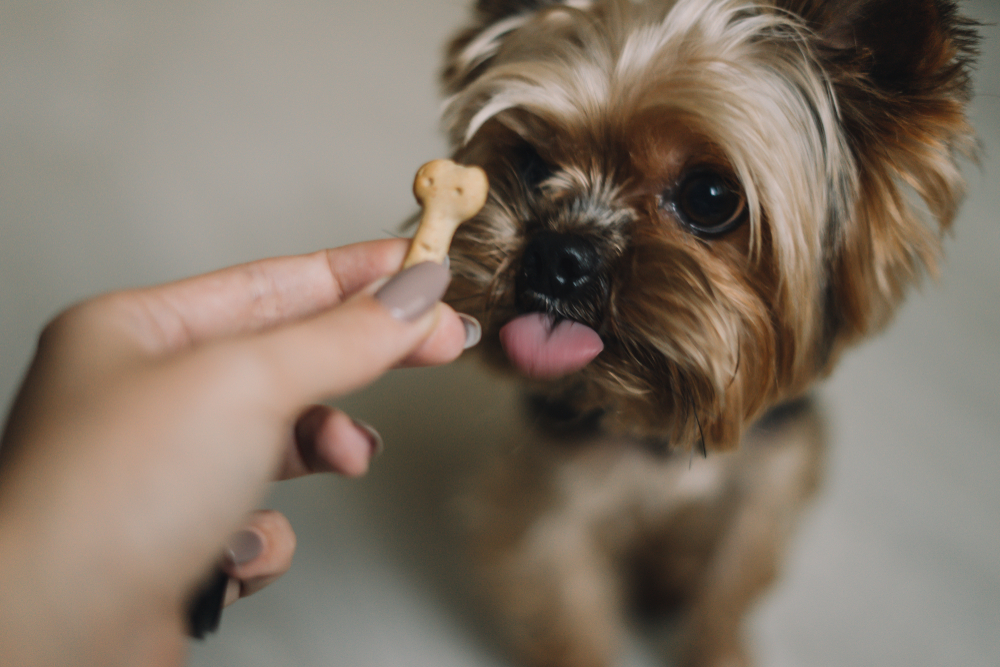
4. Adjust Their Feeding Habits
Dogs that swallow air while eating, especially those that eat rapidly, are more likely to experience flatulence. Greedy eaters and flat-faced (brachycephalic) breeds such as Pugs, Bulldogs, and French Bulldogs are at an increased risk of swallowing more air than normal.
If your dog is a greedy eater, you can try the following strategies to slow down their eating:
- Feed Smaller, More Frequent Meals
Instead of feeding your dog one or two large meals a day, consider offering smaller, more frequent meals. This approach can prevent your dog from eating too quickly and reduce the amount of air swallowed during meals.
- Use Slow Feeder Bowls
Slow feeder bowls are designed with ridges or obstacles that force your dog to eat more slowly. This can help prevent gulping and reduce the amount of air swallowed during meals.
5. Regular Exercise
Regular walks and playtime can reduce the likelihood of gas buildup. One survey of pet dogs showed that those that received the least amount of exercise had the greatest problem with flatulence.


When to See a Veterinarian
While mild gas is often harmless, excessive or foul-smelling gas can sometimes indicate an underlying health issue. If your dog’s gas is accompanied by other signs such as weight loss, vomiting, diarrhea, lethargy, and a lack of appetite, consult your veterinarian. Conditions like inflammatory bowel disease, small intestinal bacterial overgrowth (SIBO), parasites, and parvovirus can lead to excessive gas production. Gastrointestinal illness disturbs the normal ability of the intestine to absorb nutrients. These malabsorbed nutrients ferment in the colon, leading to gas production.
Food allergies can also be to blame for your dog’s gas. If your dog is fed a high-quality diet and still has excessive or extremely smelly gas, it’s worth discussing it with your veterinarian. Many dogs with food allergy or hypersensitivity have gas as a sign.
If your veterinarian suspects that your dog has a food allergy or intolerance, they may suggest an elimination diet trial. An elimination diet trial is a test to see if your dog is allergic or sensitive to a specific food ingredient. Once the problem foods responsible for your dog’s gas have been identified, you can avoid feeding them.
If you need to speak with a vet but can't get to one, head over to PangoVet. It's our online service where you can talk to a vet online and get the personalized advice you need for your pet — all at an affordable price!

Conclusion
Managing your dog’s gas starts with understanding the potential causes and thereafter making adjustments to their diet, feeding habits, and daily exercise. Certain medications are also available to help reduce gas although it’s always advisable to consult your veterinarian before giving your dog any new supplements or treatments, even if they are available over-the-counter.
Excessive or foul-smelling gas can sometimes indicate an underlying health issue such as gastrointestinal disease or a food allergy. If your dog’s gas is accompanied by signs such as weight loss, vomiting, diarrhea, lethargy, and a lack of appetite, or if your dog is fed a high-quality diet and still has gas, it’s best to consult your veterinarian. The gas should improve once the underlying condition is treated.
Featured Image Credit: san4ezz, Shutterstock


